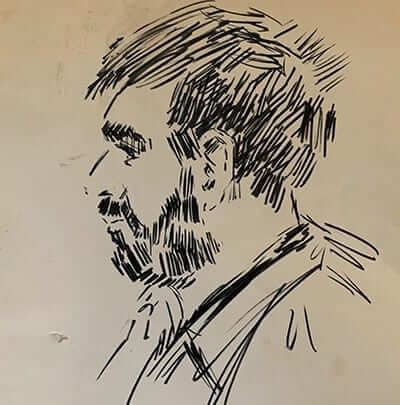When a 10 percent transmission rate is 150 percent higher than a college or university’s rate of admission, when it is improbable that adults will contract COVID-19 from teens but almost impossible for teens to avoid rejection from the adults (so-called) in the room—the adults who decide who shall enter the classrooms at Harvard or Princeton or Columbia—the life of the mind is dead.
Or, in the spirit of and to paraphrase William F. Buckley, I would rather be judged by the first 40 people in a jury pool than by the 40 people who judge applicants to Harvard College.
I would rather be a defendant in a criminal trial, free to have my lawyer examine prospective jurors, than submit my fate to a jury whose biases are no secret and whose deliberations are a sham.
I question this jury’s ability to deliberate, except to say the jury’s silence is deliberate: that its results lack evidence, that record-low acceptance rates do not prove an incoming class is the most learned and literate and civic-minded class in the history of Harvard or Princeton or Columbia; that this class has no class, that it is a monoculture more discriminatory than the finals clubs or eating clubs of the past, proud of its hatred and unwilling to study or emulate the best of the past.
To know the consciousness of this class is to understand the power of false consciousness.
What this class fails to convince others to believe is that all other classes are unfit to lead and are too unintelligent to learn. What this class believes about itself is that it has a mandate to rule, based not on the consent of the governed, but according to the consensus of those who demand to govern everything.
This belief, the belief that a so-called meritocracy is meritorious, is a threat to freedom and democracy.
What, after all, do meritocrats know about democracy in America, or democracy, or America?
The question is rhetorical, while questions abound about this class’s fluency in the rhetoric of Americanism. That this class is not conversant in the language of Adams or Jefferson is no surprise. That this class is ignorant of the lyricism of Lincoln and deaf to the mystic chords of memory is no accident.
The cultural illiteracy of this class is of a piece with the moral illiteracy of the jury responsible for this class.
The two are illiterate in a tangible way, for they do not revere that which they do not know to respect.
They see places to study, not paradises to behold, for they do not admire the architecture or honor the names engraved in stone, never stopping to hold America in their hands, never reading the works of great men or walking in humility toward works of greatness, never looking to the lights inside the Memorial Rooms of Harvard’s Widener Library or the New Lights of Princeton’s Firestone Library or at the words in lights outside Columbia’s Low Memorial Library.
To these armories of liberty, students and jurors shrug.
Because of these students and jurors, a nation weeps.

